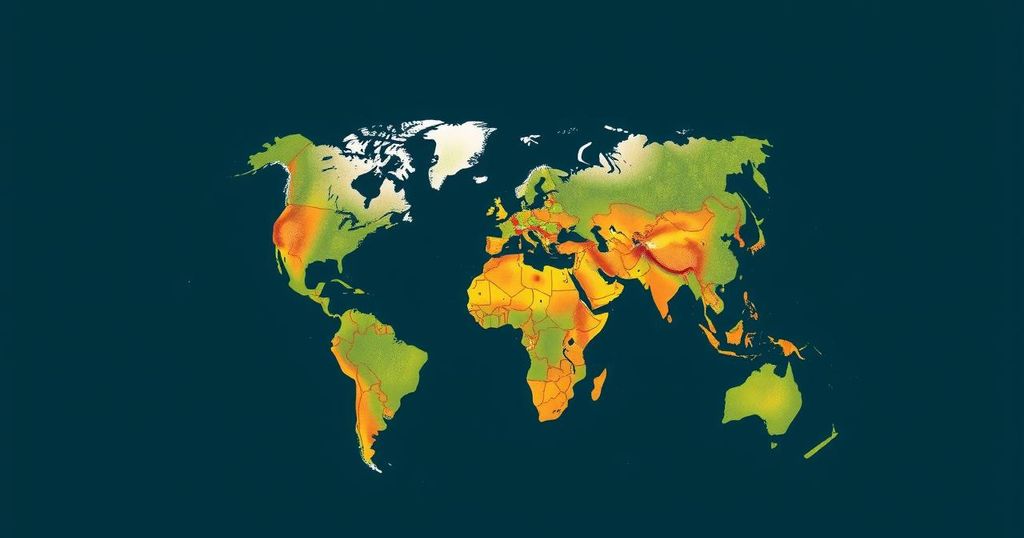Systemwide Approach to Climate Change: Urgent Action Required
The article discusses the urgent call for a comprehensive global response to combat climate change and other collective challenges posed to global economic growth. It highlights the historical role of Bretton Woods institutions in promoting economic prosperity while recognizing current geopolitical tensions and fragmentation as significant barriers. The article advocates for a collaborative approach to bridge gaps in governance and mobilize necessary financial resources for climate action, emphasizing the need for reforms in global financial systems and increased engagement from both public and private sectors.
The year 2024 signifies the 80th anniversary of the Bretton Woods institutions, established post-World War II to enhance international economic governance. These global financial institutions have contributed significantly to periods of robust economic growth attributed to globalization across various sectors, thereby lifting millions above the poverty line in nations such as China, India, and Indonesia. Nevertheless, the resilience of this economic growth is currently jeopardized by three primary challenges: the degradation of the global commons manifesting through climate change, health crises, and technological disruption; an urgent need for unified global action; and a consensus that progress has been inadequately slow in addressing these matters. The primary obstacle hindering effective action is the complexity and escalation of managing transnational issues, with climate change being the most pressing. The fragmentation of the global economy exacerbated by geopolitical tensions—exemplified by the impact of the COVID-19 pandemic and armed conflicts like the war in Ukraine—has thwarted collective initiatives. As defense expenditures rise and supply chains become vulnerable, economies face increased political strife and protectionist tendencies. The International Monetary Fund (IMF) cites that this fragmentation could cost global GDP between 2 to 7 percent. As projections indicate that a significant portion of future global growth will derive from developing nations, these countries are simultaneously grappling with severe climatic adversities. Effective governance structures need to be established to ensure that growth is both sustainable and resilient amidst these imminent challenges. China possesses a pivotal role in this dynamic, having advanced considerably in emission management and climate change policy. The private sector must also be heavily engaged, as the financial requirements for climate initiatives range from $3 trillion to $4 trillion annually, primarily derived from domestic revenue and foreign investments. Identifying gaps in governance, implementation, and accountability is critical in both the public and private sectors. Presently, there is a lack of a coordinating body to manage global climate change policies, highlighting the urgent need for reform within the financial system to facilitate the mobilization of necessary funding. The establishment of a new institution may encounter significant challenges in terms of geopolitical consensus, and any agreement could require extended time to become operational. Rapid technological advancement provides an opportunity to accelerate efforts against climate change; the primary focus should be on coordination, priority-setting, and mobilization of resources. Key strategies including global carbon trading schemes, decarbonization plans incorporating natural solutions, and carbon tax frameworks are essential for the participation of the private sector. The IMF and World Bank are ideal candidates to foster the development of carbon markets and taxation mechanisms, while reinforcing the significance of transparent sustainability disclosures. Ultimately, climate change represents an existential threat to the global community, necessitating a collaborative, systemic approach to bridge critical gaps in governance, implementation, and accountability. Both the public and private sectors must unite to combat this crisis effectively.
The article addresses the urgent need for a collective and coordinated global response to climate change and other cross-border challenges. It emphasizes the historical context of the Bretton Woods institutions and their impact on economic growth and poverty reduction over the past 80 years. The narrative underscores the dichotomy between the advances made in global living standards and the current threats posed by fragmentation in the international economic landscape, primarily exacerbated by geopolitical tensions and climate change. Furthermore, it advocates for comprehensive reforms in governance structures and financing mechanisms to address these critical issues.
In conclusion, the article asserts that a system-wide approach involving both the public and private sectors is essential to effectively address climate change. It underlines the critical gaps in governance and accountability that hinder progress, stressing the importance of a unified strategy to mobilize resources and foster sustainable development. Without such collaboration, the challenges posed by climate change and economic fragmentation will remain insurmountable, threatening global socio-economic stability and growth.
Original Source: global.chinadaily.com.cn




Post Comment